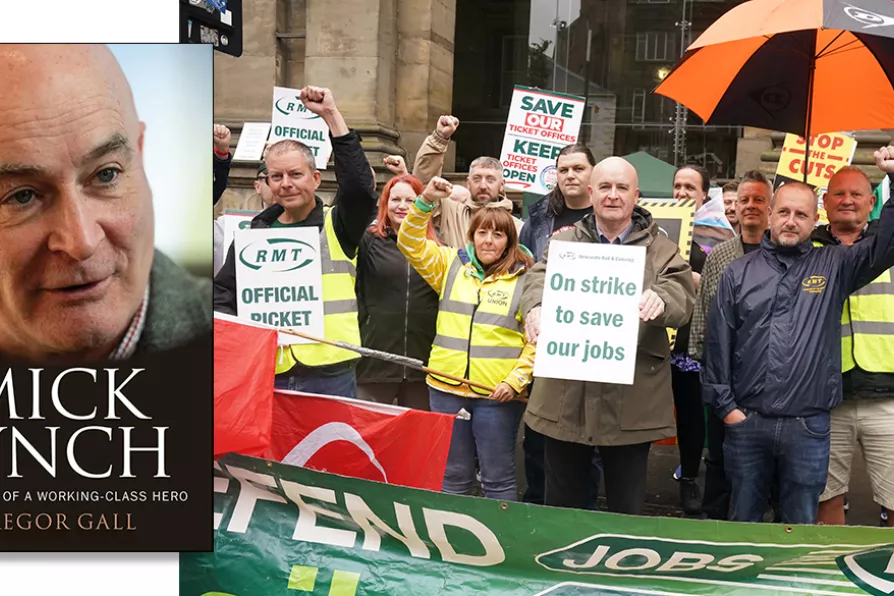For his study of anti-Muslim Muzaffarnagar Riot, HENRY BELL applauds Joe Sacco for a devastatingly effective combination of graphic novel and investigative journalism

 RMT general secretary Mick Lynch joins the RMT picket line outside Newcastle Central station July 22, 2023
RMT general secretary Mick Lynch joins the RMT picket line outside Newcastle Central station July 22, 2023
Mick Lynch: the making of a working-class hero
Gregor Gall, Manchester University Press, £20
GREGOR GALL is Visiting Professor of Industrial Relations at the University of Leeds and author of Bob Crow: socialist, leader, fighter (2017) among other books. This is a useful biography of Mick Lynch, the general secretary of the National Union of Rail, Maritime and Transport Workers. It is also a study of the relationship between trade union struggles and the struggle for socialism.
It should be said at the start that the RMT did not authorise this book, as Gall acknowledges in an appendix: “On August 23 2022, Lynch was approached to be interviewed for the writing of this book... the response on September 2 was that ‘he is not interested in participating in this project’.”

RMT’s former president ALEX GORDON explains why his union supports defence diversification and a just transition for workers in regions dependent on military contracts, and calls on readers to join CND’s demo against nuclear-armed submarines on June 7












